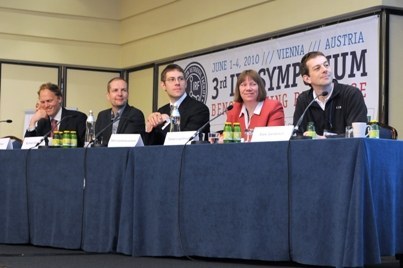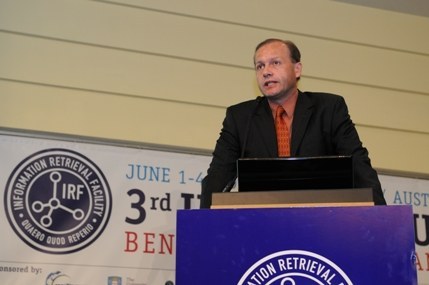Overview
The third IRF Symposium was placed under the motto "Benchmarking Relevance" and especially focused on methodology and evaluation in patent searching and retrieval. Additionally, the 3rd IRF Symposium gave participants the opportunity to discover and test prototypical versions of the most innovative technologies in the market in the Hall of Innovation.
The Imperial Riding School Vienna was home of the 3rd IRF Symposium from 1 to 4 June 2010. About 150 delegates from academia and industry met to discuss the advances in information retrieval science impacting patent information retrieval, and to test new systems and prototypes exposed by solution providers and research groups. More than 40 international speakers addressed the topics of evaluation, interfacing, semantic annotation, image retrieval, chemical patent retrieval and multilingualism in plenary sessions and workshops. While the IR scientists have now a better understanding of the specific needs of patent searchers and have begun to integrate them in their research, there is a need to involve the technology implementers to develop test applications.
To read more, download the review of the event as PDF.
James Boyle, co-founder of Creative Commons and Science Commons, and one of the most influential creative thinkers and expert of Intellectual Property in the information society was invited as keynote speaker at Symposium. He addressed the audience of leading academics, Information Retrieval and Intellectual Property experts, asking: "What If the Web Really Worked for Science?" and inviting to "Reimagining Data Policy and Intellectual Property”. Although the World Wide Web was originally invented to help spread science, it is in fact easier to use the Web to buy products than to use it for scientific research. To find and get access to academic texts is a cumbersome task due to the publication policies of information providers and the different types of data needed. Boyle concluded that we need to rethink our approach to research policy, intellectual property, and the competitive norms of science if we want the Web to really work for science.
Programme
Download the symposium
programme as PDF.

